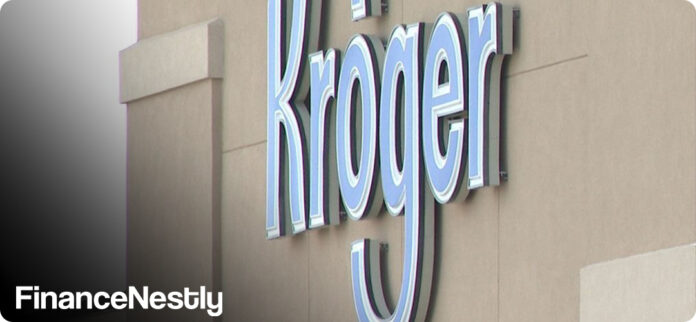In August, the grocery giant Kroger sold $10.5 billion of bonds to help fund its acquisition of Albertsons. Among these, four portions totaling $4.7 billion were subject to a special redemption clause, which would take effect if the purchase was not completed by December 31 or another agreed-upon date. With the acquisition now blocked, Kroger could potentially be forced to buy back that debt from its bondholders.
Debt Swaps and Cancellation of Deal
In addition to the bond sale, Kroger also announced that it was swapping at least $6.8 billion of Albertsons’ notes for new securities. This debt tender was contingent upon the completion of the acquisition. Since the deal is now off, Kroger is unlikely to proceed with swapping these notes for cash.
Impact on Bond Spreads
The spread on Kroger’s 4.7% notes due in 2026 has narrowed by over 20 basis points since the announcement of the blocked merger. Other bonds, which also included redemption clauses, saw their prices rise closer to 101 cents, and their spreads narrowed as well. According to analysts from CreditSights Inc., including James Goldstein and Noah Schucking, the market had already largely priced in the outcome even before the ruling, as the decision was widely expected.
Potential for Accelerated Share-Repurchase Program
There is a high probability that Kroger will use the remaining proceeds from its bond sale for an accelerated share-repurchase program, according to CreditSights analysts. This strategic move could help the company maintain shareholder value despite the setback with the merger.
Blocked M&A Deals and Bond Redemptions
Kroger’s failed deal with Albertsons marks the second major acquisition this year to be blocked, potentially triggering a bond redemption. Earlier in October, Tapestry Inc.’s $8.5 billion acquisition of Capri Holdings Ltd. was also blocked by a U.S. judge. Tapestry subsequently announced it would buy back $6.1 billion worth of bonds it had sold to finance the planned acquisition.
Scott Kimball, chief investment officer at Loop Capital Asset Management, commented that larger M&A transactions have recently faced increased scrutiny, in addition to rising financing costs. He emphasized the need for event-driven investors in the debt market to assign a higher risk factor to deals like these, leading them to be more selective when acquiring bonds.
Tapestry’s Bondholder Losses and Kroger’s Gains
For Tapestry’s bondholders, the blocked acquisition led to significant losses. The bonds Tapestry had purchased were initially sold in November 2023. With the Federal Reserve cutting interest rates, market yields fell in 2024, driving the prices of many of these bonds higher. However, Tapestry bought back those bonds at 101 cents on the dollar, a price they were entitled to under the terms of the notes.
In contrast, Kroger’s bondholders are likely to see smaller gains. Since the bonds were issued in August and their prices are closer to face value, investors will receive a slight premium when selling at 101 cents on the dollar. The longer-term portions of Kroger’s $10.5 billion bond sale in August were not subject to mandatory redemption if the acquisition fell through.
Kroger’s Future Options and Legal Challenges
Kroger could still appeal the decision to block the merger. However, such an appeal may take some time and is expected to result in redemption due to the December 31 deadline. Meanwhile, Albertsons has filed a lawsuit against Kroger, claiming that the grocery giant failed to make its “best efforts” and take the necessary actions to secure regulatory approval for their proposed $24.6 billion merger.

